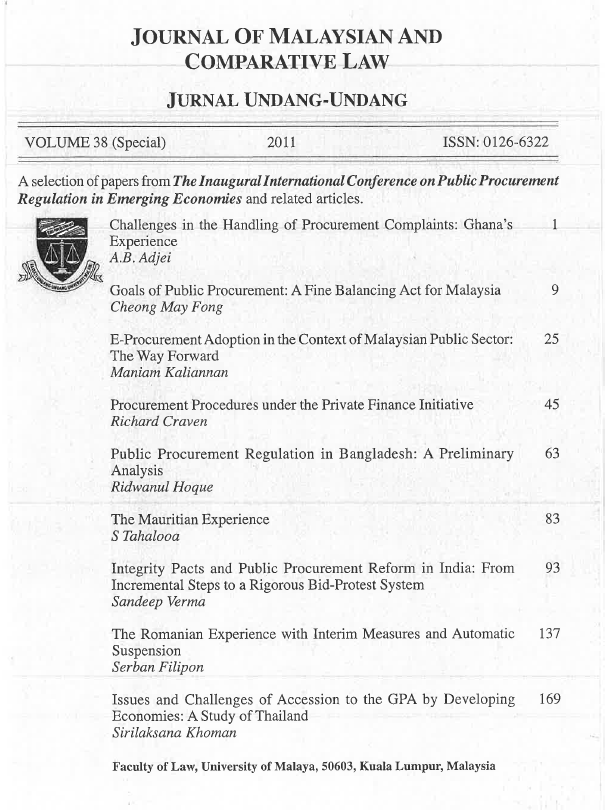Integrity Pacts and Public Procurement Reform in India
From Incremental Steps to a Rigorous Bid-Protest System
Abstract
Integrity Pacts (IPs) have been adopted in a number of countries as an instrument for greater public oversight over possible corruption in government organisations, with application both in defence as well as in civilian purchases. In addition to their anti-corruption objectives, these pacts could also potentially enhance citizen participation in government contracting activities, while allowing dissatisfied bidders a forum in which to protest seemingly arbitrary and unfair agency actions. India has witnessed the introduction of these pacts in its public procurement regulations right since 2006; and with her joining recently as an observer to the plurilateral Agreement on Government Procurement, the need for a robust domestic review procedure for bidder grievances assumes an even greater importance. An in-depth examination of Integrity Pacts as legal tools for ensuring greater transparency and competition in the award of government contracts is yet to be conducted in India; and this paper aims to reduce the gap in academic research by undertaking a detailed examination of important dimensions of IPs as implemented in India. After a short analysis, it concludes with suggestions for strengthening and for transforming the IP mechanism into a tool for effective, comprehensive and independent oversight of domestic public contract-award decisions.
Downloads









